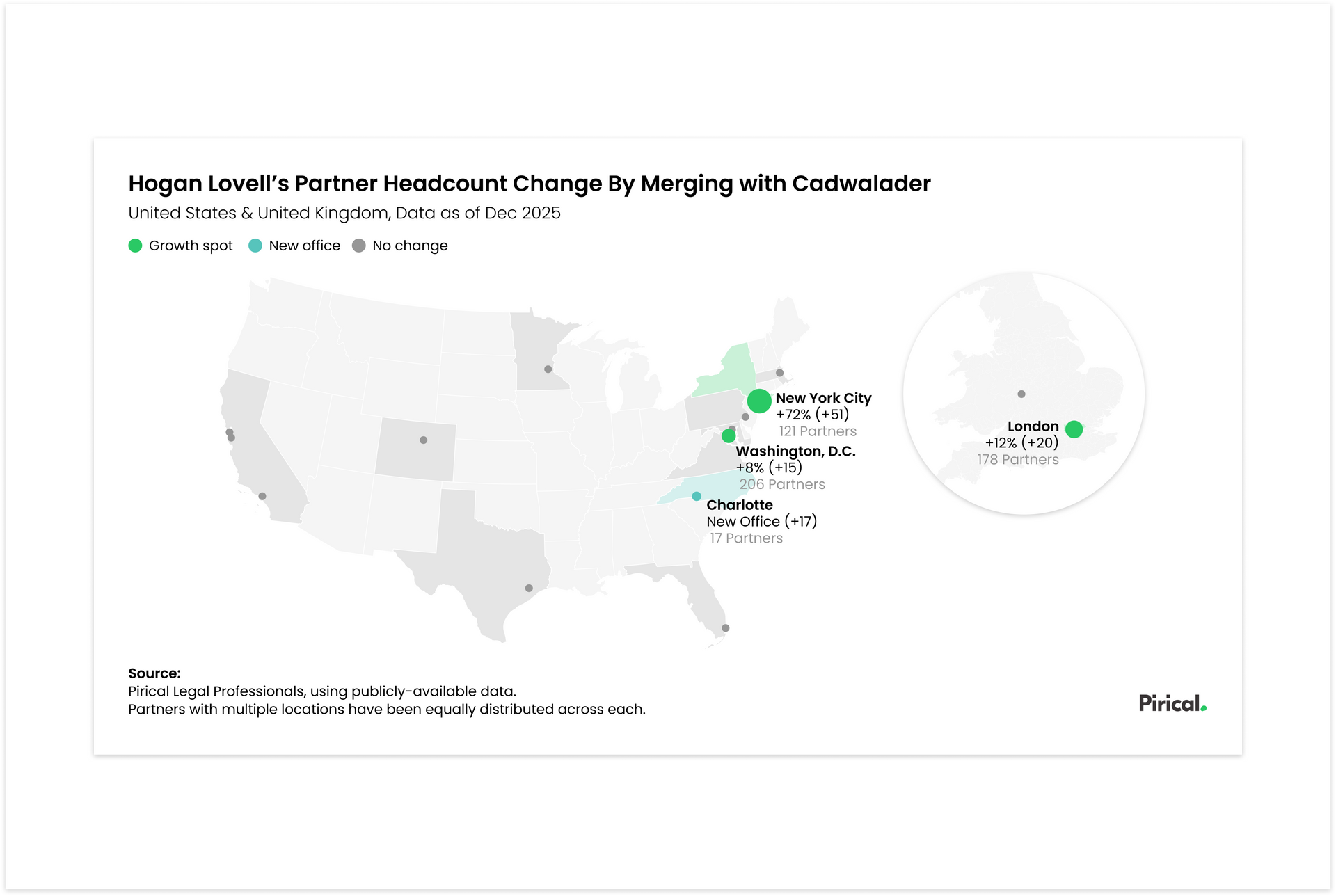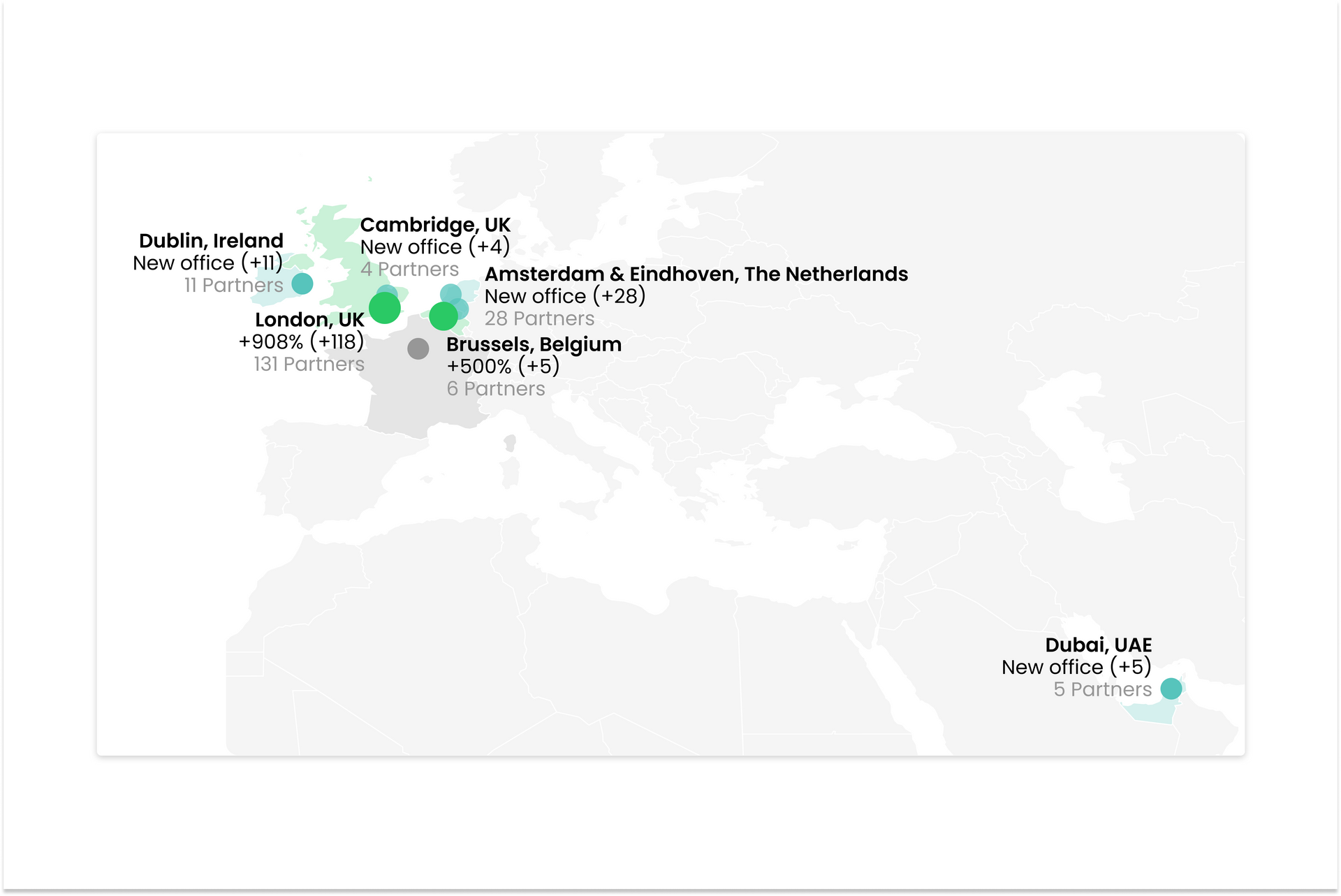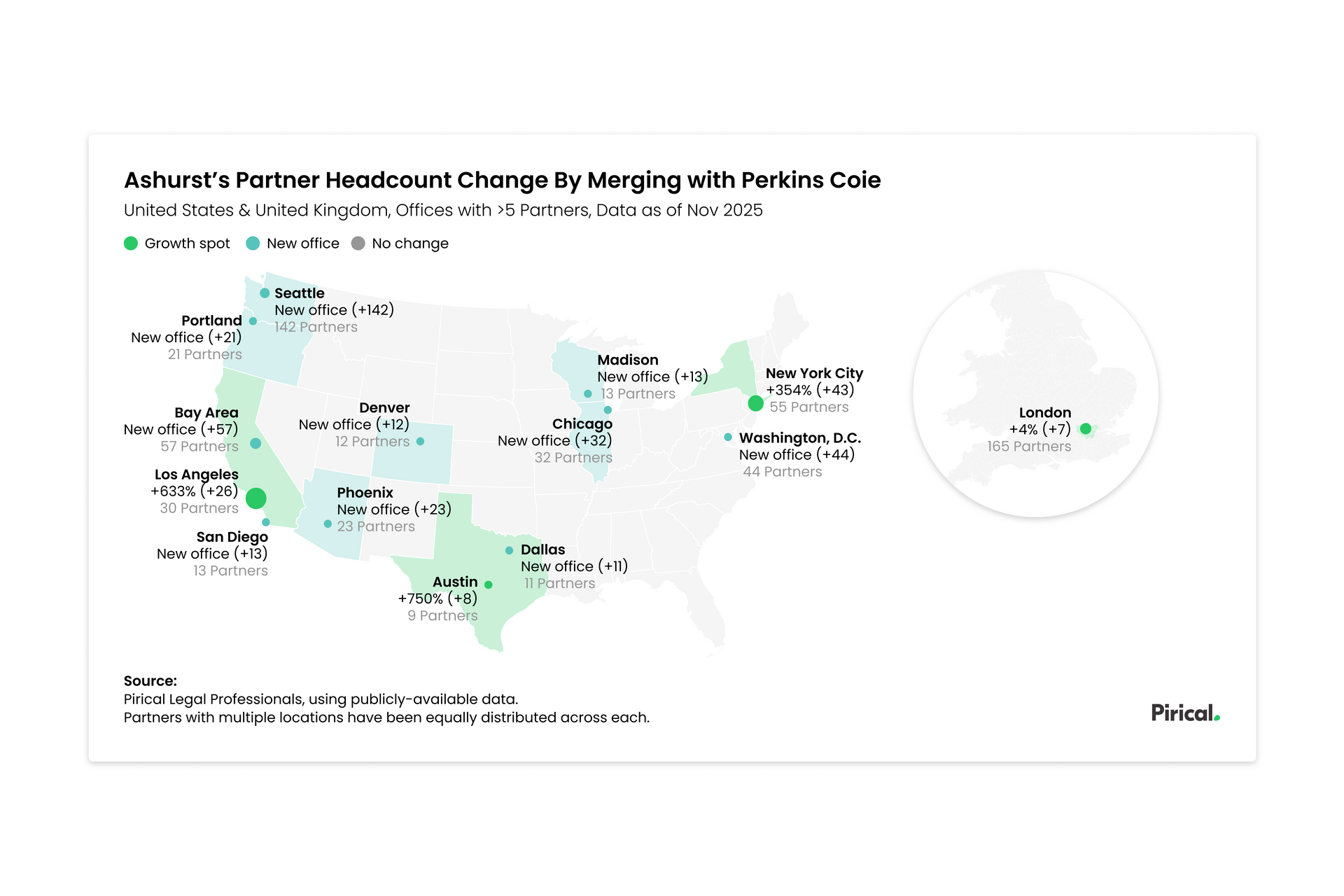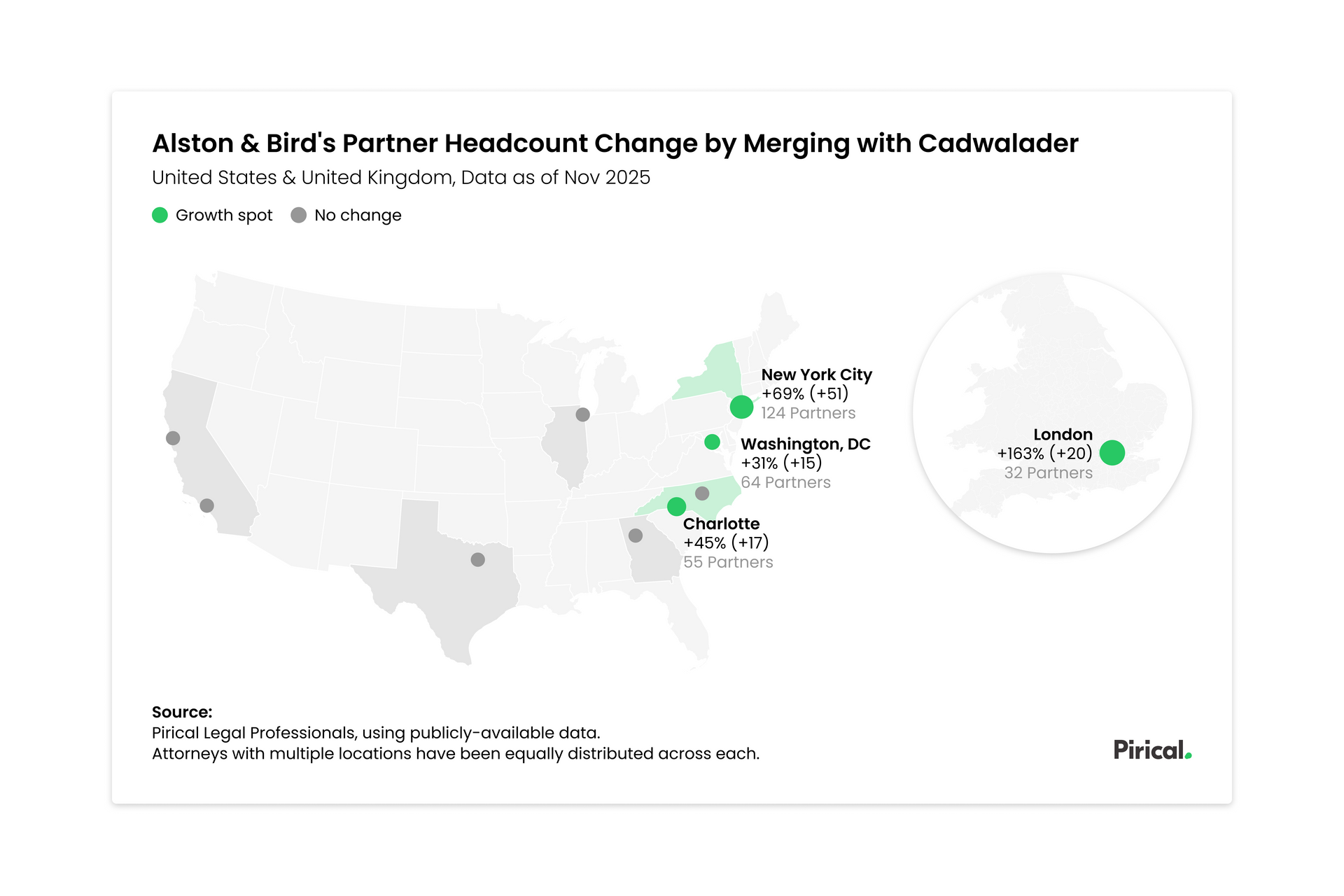How Linklaters reduced graduates’ application time by 80% through automated candidate screening
What do you do when you have a nagging feeling that your recruitment process doesn’t deliver you the best results?
Felix Hebblethwaite, Global Head of Recruitment at Linklaters, knew that the firm’s graduate recruitment process had to change. We had the opportunity to talk to him about the process — from identifying the problem, collecting and analysing the data and identifying the optimal solution.
The result: A 50% increase of applications, 80% less time required for the candidates, and automating screening.
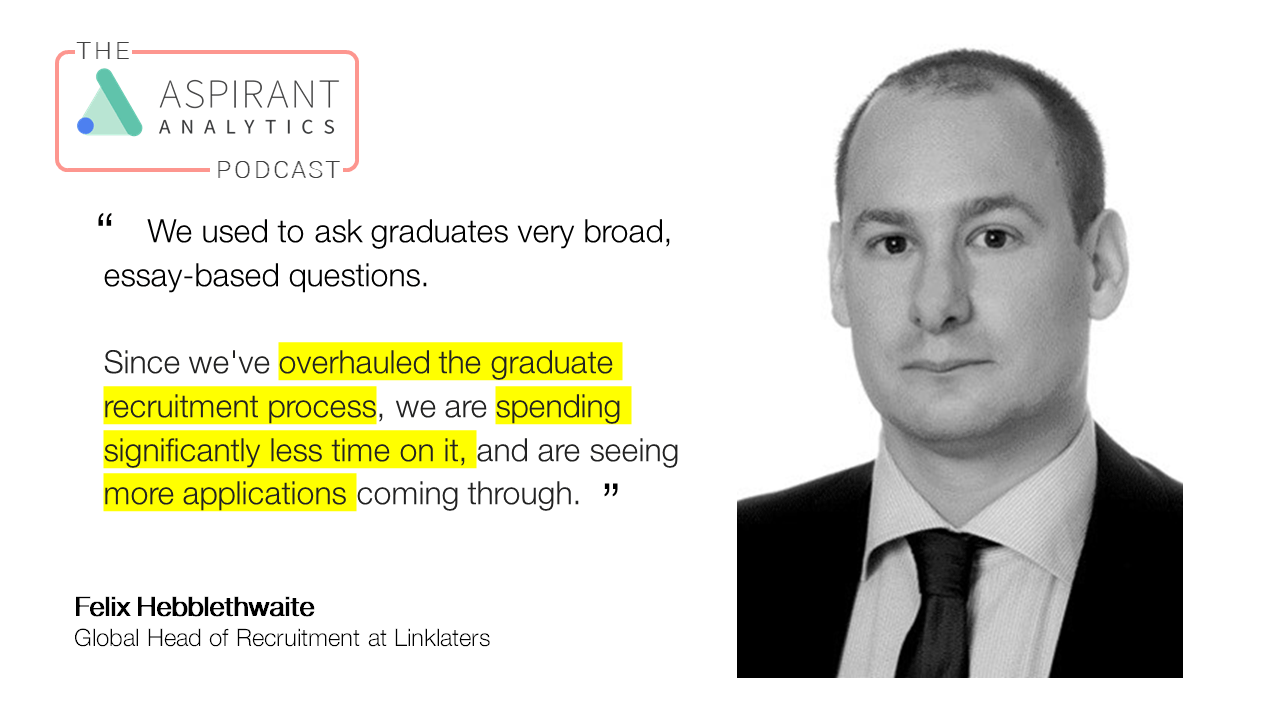
Listen to the full audio here:
0:00 - 2:20 Felix’s background and introduction to Linklaters’ recruiting process
2:20 - 4:40 Initial candidate screening and how long it used to take
4:40 - 7:05 What made Felix rethink the process
7:05 - 8:20 Step 1: Gathering data with Pirical
8:20 - 12:50 Quick wins from the data gathering process
12:50 - 14:10 How the data provided an excuse to start from zero
14:10 - 19:25 A new online assessment approach for candidate screening
19:25 - 20:35 How to measure empathy and resilience online
20:35 - 24:30 The new welcome process results in growth of applications
24:30 - 27:00 Linklaters now and their future projects
27:00 - 28:15 KPIs for whether the new process is better
28:15 - end Wrap up
--
An Inefficient Recruitment Process
When Felix first started in his current role as Linklaters' Global Head of Resources and Recruitment in 2015, he inherited an approach to recruitment that was inefficient and slow. As part of the application process, candidates were required to detail their work experience and motivation in essay style responses, which would take them between 4 and 5 hours to complete.
“Also, since the topics were quite broad and other law firms used the same screening process,” Felix says, “you have to ask how much copying and pasting was going on.”
“It wasn’t uncommon for us to get applications with the wrong law firm name mentioned.”
This approach was also cumbersome for those at Linklaters who had to screen the applications. An individual application would take 20-25 minutes to review, and given the volume, there was no time to give rejected applicants proper feedback.
After observing this process in action, it became clear to Felix that there was much to change and improve. Unfortunately, Linklaters didn’t have the capacity to ingest and analyse the reams of paper and electronic data that had accumulated over the years. It was at this time when Felix teamed up with Pirical.
Quick wins
After collecting and analysing all Linklaters’ data, we were able to identify a few trends that allowed Felix to reap two quick wins:
-
Interviewers’ performance , measured as the ability to predict a future great employee, varied widely, with the data showing that the interviewers who performed the best were those who did the most interviews. As a result, Felix made sure to remove interviewers from the process who had only occasional interviewing experience, and to ensure that even backup interviewers had lots of experience.
-
Felix saw proof that the Linklaters vacation scheme (4 weeks of internship-style work) was very successful in predicting long-term high performers, which allowed him to expand the programme.
Long-term changes
More structural changes took around 2 years.
In the first year, Linklaters focused on defining what was important for the firm in terms of new recruits, and changed the assessment framework, using it as a guide for a new process. Rather than testing for writing skills early on — one of the reasons for the essays in the previous process — Linklaters now places, during the initial screening, a higher emphasis on personal characteristics such as empathy and resilience, using questions of the “what would you do if…” type.
“We are looking for a true insight into how people are going to operate in a firm like ours,” Felix says, “so the questions are all scenario-based on real-life situations from actual Linklaters’ deals.”
The second year was dedicated to implementing the new screening process.
Now, the first screening consists of the scenario-based multiple-choice test which can be completed in 60-90 minutes, a 60-80% time save for the applicant. The tool then immediately calculates a score based on the responses and tells the candidate if they have advanced to the next stage. Of course, this means that Linklaters recruiters do not need to spend time reviewing an application.
Another added benefit of the online process is that the feedback cycle is shortened. Linklaters are now able to look in real time how candidates are performing, then question that performance and make quick changes when needed.
And while writing and reasoning are, of course, paramount for any aspiring lawyer, Felix and his team have now shifted screening for it towards later in the process: During an assessment day, candidates write long-form text in the office, which not only reveals their writing skills, but also ensures that they cannot get help from someone else or copy and paste from previous work.
A more welcoming process should increase socioeconomic diversity
Since launching the new application process in late August 2019, the number of graduate applications at Linklaters has grown by 50% compared to the same period in 2018.
While it’s too early to say anything about the success of the new recruitment process, one possible benefit is starting to become apparent.
The new, much shorter, process should be more attractive for candidates who have not yet committed to a career as a lawyer as the time investment is lower than before - and lower than with most other law firms.
“If you come from a socioeconomic background where you don’t know anyone working in a law firm, your level of confidence about succeeding in the application process is also going to be lower. But hopefully our new approach will be more welcoming.” Felix says.
Could your firm also benefit from a thorough, data-based review of your graduate recruitment process? Contact us HERE to discuss your situation.
Subscribe to the latest data insights & blog updates
Fresh, original content for Law Firms and Legal Recruiters interested in data, diversity & inclusion, legal market insights, recruitment, and legal practice management.

